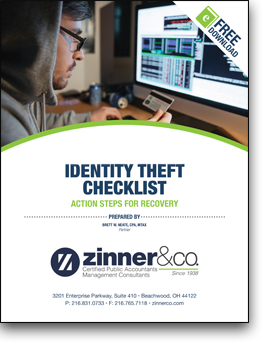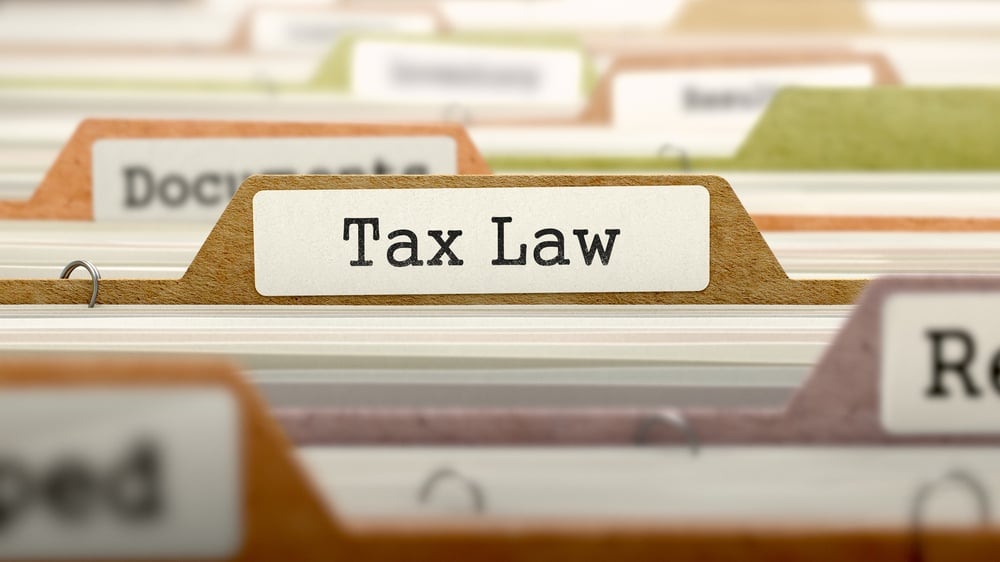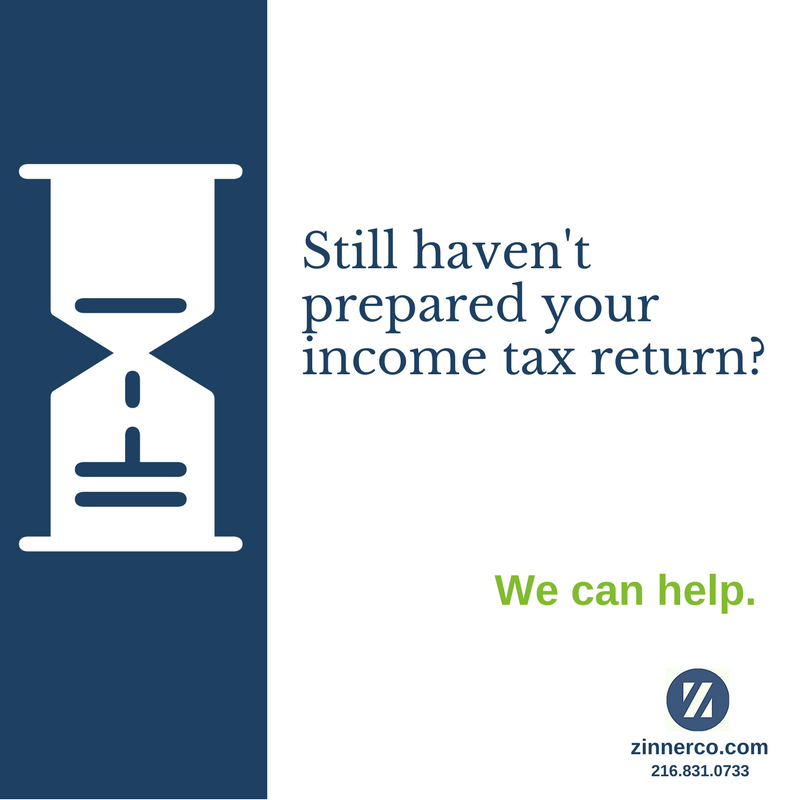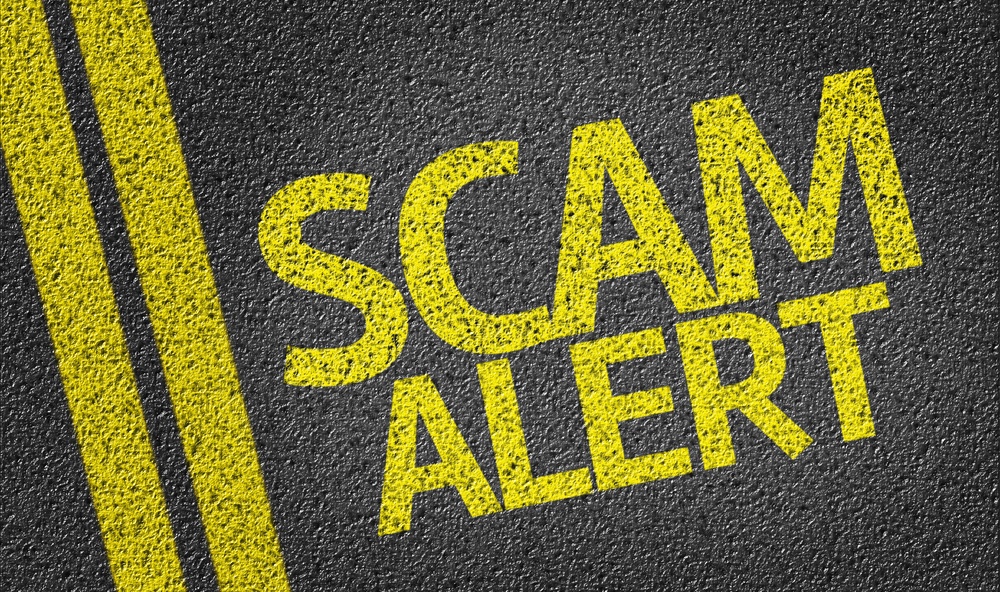IRS Warns of New Phone Scam Involving Bogus Certified Letters; Reminds People to Remain Vigilant Against Scams, Schemes this Summer
Zinner & Co. Tax Team fraud , income tax , IRSIRS Alerts Taxpayers with Limited English Proficiency of Ongoing Phone Scams; Urges Caution Before Paying Unexpected Tax Bills
Brett W. Neate, CPA, MTax Brett W. Neate , Credit card fraud , IRSCon artists often approach victims in their native language, threaten them with deportation, police arrest and license revocation, among other things.
“These scammers continue to adapt and evolve, and the IRS continues to receive reports of these schemes using multiple languages trying to find victims across the country,” IRS Commissioner John Koskinen said.
Oops. What you need to know if you discover an error after you have filed your income tax return.
Zinner & Co. Tax Department Taxes - Individual , IRS , Matt SzydlowskiIf you discover an error after filing your return, you may need to amend your return. The IRS may correct mathematical or clerical errors on a return and may accept returns without certain required forms or schedules.
In these instances, there's no need to amend your return. However, do file an amended return if there's a change in your filing status, income, deductions, or credits. Use Form 1040X (PDF), Amended U.S. Individual Income Tax Return, to correct a previously filed Form 1040 (PDF), Form 1040A (PDF), Form 1040EZ (PDF), Form 1040NR (PDF), Form 1040NR-EZ (PDF), or to change amounts previously adjusted by the IRS.
You can also use Form 1040X to make a claim for a carryback due to a loss or unused credit; however, you may also be able to use Form 1045 (PDF), Application for Tentative Refund, instead of Form 1040X. Also, if the Form 8938 (PDF), Statement of Specified Foreign Financial Assets, applies to you, file it with an annual return or an amended return. See the Form 8938 Instructions for more information.
Learn more about income tax planning from the Zinner & Co. tax team
Pay Me Now, Pay Me Later: Should you pay quarterly estimates or utilize tax withholdings?
Zinner & Co. Taxes - Individual , income tax , IRS , Matt SzydlowskiMany clients ask if it is more advantageous to pay quarterly tax estimates or utilize their tax withholding. I wish there were a simple, cookie-cutter answer. However, as no two taxpayers are alike, the same goes for the manner in which one can pay one’s taxes.
Both methods of paying income tax have their pros and cons. The best selection depends on your personal preference and, more so, financial situation. A majority of self-employed individuals must utilize quarterly payments. However, if you have an income source such as retirement distributions, social security or employee wages, you have the option of withholding tax from those income streams in lieu of paying quarterly.
I Just Received a Huge Tax Refund! Why this may not be a good thing to brag about…
Zinner & Co. Tax Department Taxes - Individual , income tax , IRSI pay all the taxes owed, and not a penny more” – Mitt Romney
For many taxpayers, the dread of gathering information, preparing a tax return, and filing it is tedious and time consuming. However, just as the sun shines brightest after a rain, cheers and smiles replace the angst of prep when the tax refund check makes its way to the bank account.
“I’m going to … take a trip, buy a TV, go shopping…” After all, a common thought when receiving the refund is “it’s my money AND it is a refund! I should live a little.”
4 Ways to Spot IRS Debt Collection Scammers
Zinner & Co. Tax Department fraud , Brett W. Neate , IRSExtracted in part from https://www.irs.gov/uac/newsroom/irs-alerts-taxpayers-with-limited-english-proficiency-of-ongoing-phone-scams-urges-caution-before-paying-unexpected-tax-bills
How private debt collection works
The IRS reminds people to be on the lookout for scam artists trying to dupe taxpayers as the private debt collection program begins.
Starting this month, a new program will transfer some long-standing tax bills over to private firms. The only outside agencies authorized to contact taxpayers about their unpaid tax accounts will be one of four firms authorized under the new private debt collection program. Even then, any affected taxpayer will be notified first by the IRS, not the private collection firm.
IRS Offers Last-Minute Filing Tips
Zinner & Co. Tax Department Brett W. Neate , Taxes - Individual , IRSFrom IRS.gov
IR-2017-80, April 12, 2017
WASHINGTON — With the April 18 deadline fast approaching, the Internal Revenue Service today offered taxpayers still working on their 2016 taxes a number of tips.
The IRS encourages taxpayers to file electronically. Doing so, whether through e-file or IRS Free File, vastly reduces tax return errors, as the tax software does the calculations, flags common errors and prompts taxpayers for missing information. And best of all, there is a free option for everyone. Whether filing electronically or on paper, be sure to keep a copy of your tax return.
In addition, the IRS offers these last-minute tips:
Private Collection of Some Overdue Federal Taxes Starts in April; Those Affected Will Hear First From IRS; IRS Will Still Handle Most Tax Debts
Zinner & Co. Tax Department fraud , income tax , IRSReposted from the IRS newswire, April 4, 2017
Is Your Employee Really an Independent Contractor? What you need to know in the eyes of the IRS
Zinner & Co. Tax Department Employee or Independent Contractor , Taxes - Corporate & Business , IRSIf your business uses independent contractors as part of its work force, depending on the circumstances, the IRS might reclassify these workers as employees. Such a reclassification would expose your business to employment taxes and penalties. In addition, your business might be responsible for retroactive fringe benefits for any reclassified workers.
IRS Warns of Email Scam Targeting Employers, Tax-Exempt Entities, Universities and Schools, Government and Private Sector Businesses
Zinner & Co. Tax Department scams , fraud , IRSA dangerous email scam currently is circulating nationwide and targeting employers, including tax exempt entities, universities and schools, government and private-sector businesses. The scammer poses as an internal executive requesting employee Forms W-2 and Social Security Number information from company payroll or human resources departments. They may even send an initial “Hi, are you in today” message before the request.
About Us

Since 1938, Zinner has counseled individuals and businesses from start-up to succession. At Zinner, we strive to ensure we understand your business and recognize threats that could impact your financial situation.
Recent Blog Posts
Categories
- 1031 Exchange (2)
- 401k (2)
- 529 plan (4)
- ABLE Act (1)
- account systems (3)
- accounting (8)
- Affordable Care Act (8)
- alimony (2)
- American Rescue Plan Act (1)
- Ask the Expert (5)
- Audit and Assurance Department (13)
- audits (8)
- Bank Secrecy Act (1)
- banks (1)
- Barbara Theofilos (6)
- Beneficial Ownership Information (1)
- Bitcoin (1)
- block chain (2)
- BOI (3)
- Bookkeeping (1)
- Brett W. Neate (28)
- budgets (1)
- Bureau of Worker's Compensation (12)
- Business - Management, Issues & Concerns (50)
- business income deduction (3)
- business succession (7)
- business travel expense (3)
- business valuation (5)
- capital gains (2)
- careers (7)
- cash flow (2)
- Child Tax Credit (2)
- Chris Valponi (8)
- City of Cleveland (1)
- Cleveland COVID-19 Rapid Response Fund (1)
- Cleveland Rape Crisis Center (2)
- college (3)
- Community (24)
- Compliance (1)
- Coronavirus (24)
- Corporate Transparency Act (1)
- COVID-19 (30)
- Credit card fraud (5)
- credit reporting (2)
- cryptocurrency (2)
- CTA (2)
- cybersecurity (16)
- dead (1)
- DeAnna Alger (6)
- death (2)
- debt (4)
- deductions (14)
- Deferring Tax Payments (4)
- Department of Job and Family Services (2)
- depreciation (1)
- Digital Tax Payment (1)
- divorce (4)
- DOMA (3)
- Economic Impact Payments (2)
- Economic Injury Disaster Loan (4)
- education (8)
- EIDL (1)
- electronic filing (4)
- Electronic Tax Payments (2)
- Emergency Working Capital Program (1)
- employee benefit plan auditor (1)
- Employee Leave (2)
- Employee or Independent Contractor (6)
- Employee Retention Credit (3)
- employment (2)
- ERC (3)
- Eric James (8)
- Estates, Gifts & Trusts (47)
- expenses (5)
- Families First Coronavirus Response Act (2)
- FASB (1)
- FBAR (1)
- FDIC coverage (1)
- Federal Assistance (4)
- filing (3)
- financial planning (8)
- Financial Planning - College (9)
- financing (3)
- Firm news (119)
- first responders (1)
- FMLA (1)
- foreign assets (3)
- fraud (38)
- FSA (1)
- fundraising (9)
- Gabe Adler (1)
- gift tax (5)
- HDHP (2)
- health care (3)
- home (2)
- home office (1)
- Howard Kass (2)
- HRA (1)
- HSA (5)
- identity theft (30)
- income (1)
- income tax (57)
- independent contractor (1)
- Inflation (1)
- Insurance (7)
- internal control (4)
- international (2)
- Intuit (1)
- investments (4)
- IRS (87)
- jobs (5)
- John Husted (1)
- K-1 (1)
- Laura Haines (3)
- Layoff (2)
- Layoffs (1)
- leadership (3)
- lease accounting standards (1)
- life insurance (1)
- LLC (3)
- Loans (2)
- longevity income annuities (1)
- Lorenzo's Dog Training (1)
- Magic of Lights (1)
- management advisory (3)
- manufacturing (2)
- Matt Szydlowski (3)
- medical (7)
- Medicare (2)
- mergers and acquisitions (1)
- Mike DeWine (2)
- Millennial Concepts (2)
- minimum wage (1)
- NAIOP (1)
- National Defense Act (1)
- non-profit reporting (10)
- non-profits (38)
- not-for-profit (26)
- ODJFS (1)
- office (1)
- ohio (12)
- Ohio business owners (18)
- Ohio Department of Jobs and Family Services (3)
- Ohio Department of Taxation (3)
- Ohio Incumbent Workforce Training Voucher Program (1)
- Online Tax Payment (3)
- Operations (2)
- OPERS (1)
- owners of foreign entities (1)
- partnerships (5)
- passwords (1)
- Paycheck Protection Program (9)
- payroll (8)
- penalties (3)
- pension (2)
- personal finance (2)
- planning (4)
- ppp (7)
- Productivity (5)
- Qualified Business Income (1)
- quickbooks (10)
- real estate (13)
- record retention (2)
- records (2)
- Reporting (1)
- Republican National Convention (1)
- Retirement Planning & IRAs (52)
- Richard Huszai, CPA (5)
- RITA (1)
- Robin Baum (6)
- RRF (1)
- S Corporation (1)
- SALT (8)
- SBA (8)
- scams (10)
- SECURE 2.0 Act (1)
- security (6)
- SharedWorks (1)
- Shutdown (3)
- Silver Linings (9)
- simplified employee pension (1)
- Small Business (5)
- SMB (12)
- Social Media (1)
- social security (4)
- Speaker Series (2)
- spouse (1)
- start ups (8)
- Stay at Home Order (3)
- Steven Mnuchin (1)
- Sue Krantz (6)
- SVOG (1)
- tangible property (1)
- tax (27)
- tax avoidance (12)
- Tax Credit (6)
- Tax Cuts and Jobs Act of 2017 (31)
- Tax Exempt (1)
- Tax Holiday (1)
- Tax Interns (2)
- tax services (28)
- taxes (45)
- Taxes - Corporate & Business (104)
- Taxes - Individual (116)
- Taxes - Planning, Rules and Returns (186)
- TechCred (1)
- technology (7)
- The CARES Act (6)
- The SOURCE (1)
- tiag (3)
- transaction advisory (2)
- Treasury Department (5)
- tuition (3)
- U.S. Department of the Treasury (1)
- U.S. Small Business Administration (6)
- Unclaimed Funds (1)
- Unemployment Benefits (4)
- withdrawls (2)
- withholding (6)
- Workers Comp Billing Changes (1)
- Zinner & Co. (32)
- Zinner News (30)












